🕊️ Ceasefire Now in Gaza 🕊️
Quick announcement: an annual subscription is on sale for $60 ($5/month) this week.
I’m always shook to learn about the history of textiles—like the fact that gingham print is from Dutch-colonized Malaysia. The word “gingham” comes from the Malay word “genggang.” It makes me look at cottagecore skirts, Dorothy Halloween costumes and picnic blankets differently. In the US, gingham is strongly associated with the South—think Reese Witherspoon’s “whiskey in a teacup” brand of white femininity. The power in learning about textile history is that it disrupts these Western and Eurocentric aesthetic contexts.
Last week I learned that this “snowflake” design is actually the Bethlehem Star, a centuries-old Palestinian embroidery symbol. The trade between the Arab world and Europe passed through Italy, and patterns found on European garments can be traced directly to Palestine.
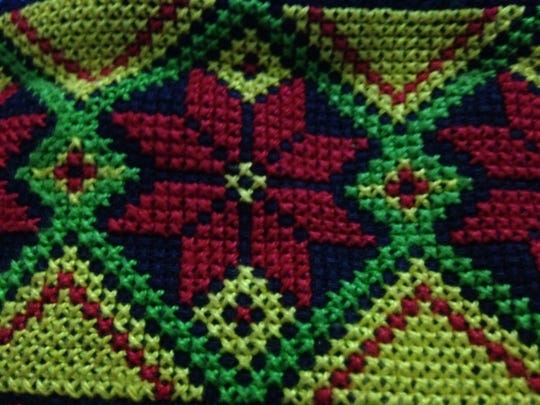
In the contemporary fashion space, I would say that the “snowflake” pattern manifests as a more abstracted “fair isle” pattern that designers use as a reference to Nordic and Scandinavian aesthetics. (The fair isle sweater style was not produced until WW1.) The zigzags and pointy repetitive patterns clearly harken to the “snowflake”/star imagery, however diluted. Brands with Scandi roots like Ganni, Stine Goya, Acne Studios and those without utilize this pattern all the same to market the idea of “Scandi-girl” style.
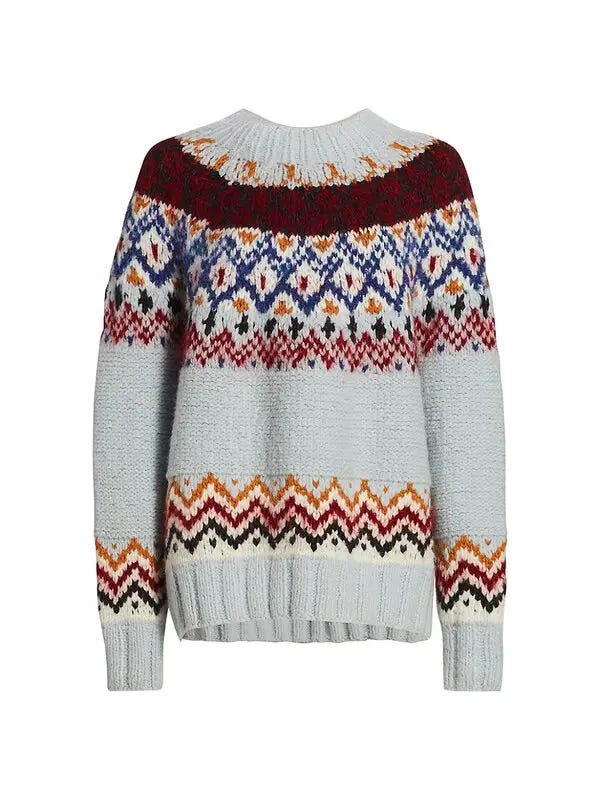
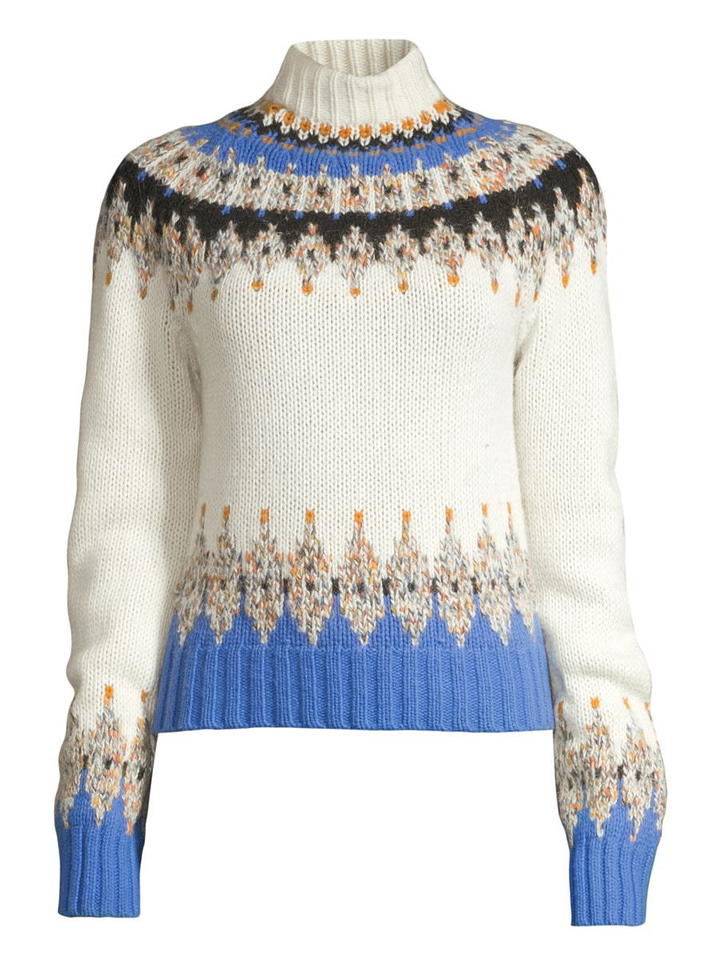
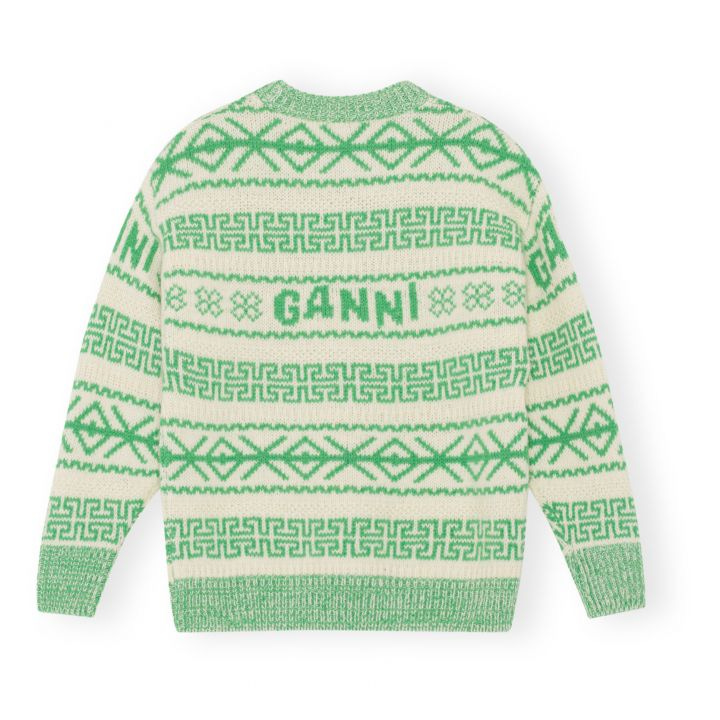
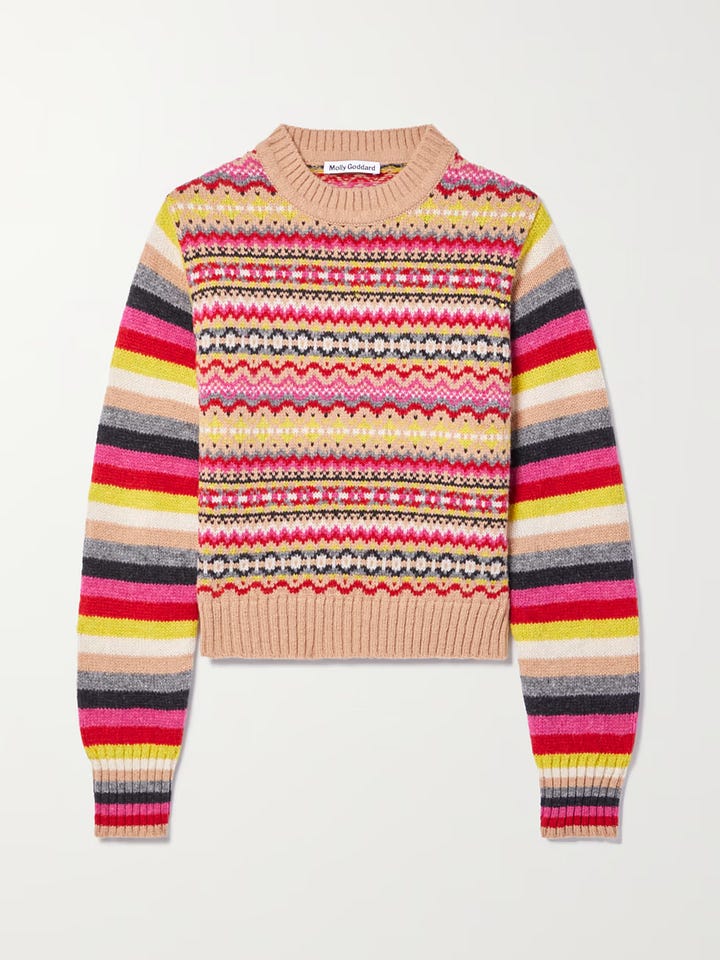
Acknowledging the Palestinian influence of fair isle patterns disrupts the narrative of “Scandi-girl” style. I would say that it reveals a crack in the marketing myth around who gets to be a “Ganni Girl”: what she’s supposed to look like, where she comes from. By naming the Palestinian origins of the fair isle pattern, it forces us to confront the irreconcilable difference in the worlds of the Ganni Girl and the Gaza Girl we see in our Instagram feeds. One is wearing colorful striped pajamas arranging pink tulips in her apartment. One is trapped under the rubble, her family and home lost.
As a fashion writer speaking to a fashion-savvy reader, I hope to share the connections between Palestine and the fashion space. To show that fashion isn’t this thing that exists in a vacuum…it’s the expression of our social and political culture through clothes. As long as we’re out here wearing Ganni fair isle sweaters, we should be talking about Palestine. I would love to know in the comments:
Are there any connections between fashion and Palestine you’ve learned about?
How do you feel about the fashion space’s general lack of acknowledgement and solidarity with Palestine? (Esp brands).
How do you think we can incentivize the fashion space to talk about Palestine?
I want to see more fashion writers with influence on Substack speaking about Palestine, and hope that my voice offers others the courage or empowerment to do so. I’ve found that IG is one avenue for sharing info and that’s great, but on Substack we have the advantage of an audience that wants to read long-form content—something that holds attention for longer than a 10 second story.
If you made it this far: thank you for supporting my writing. And thank you to everyone who has sent kind messages over the past few weeks. I appreciate the community we’re building here. 💓





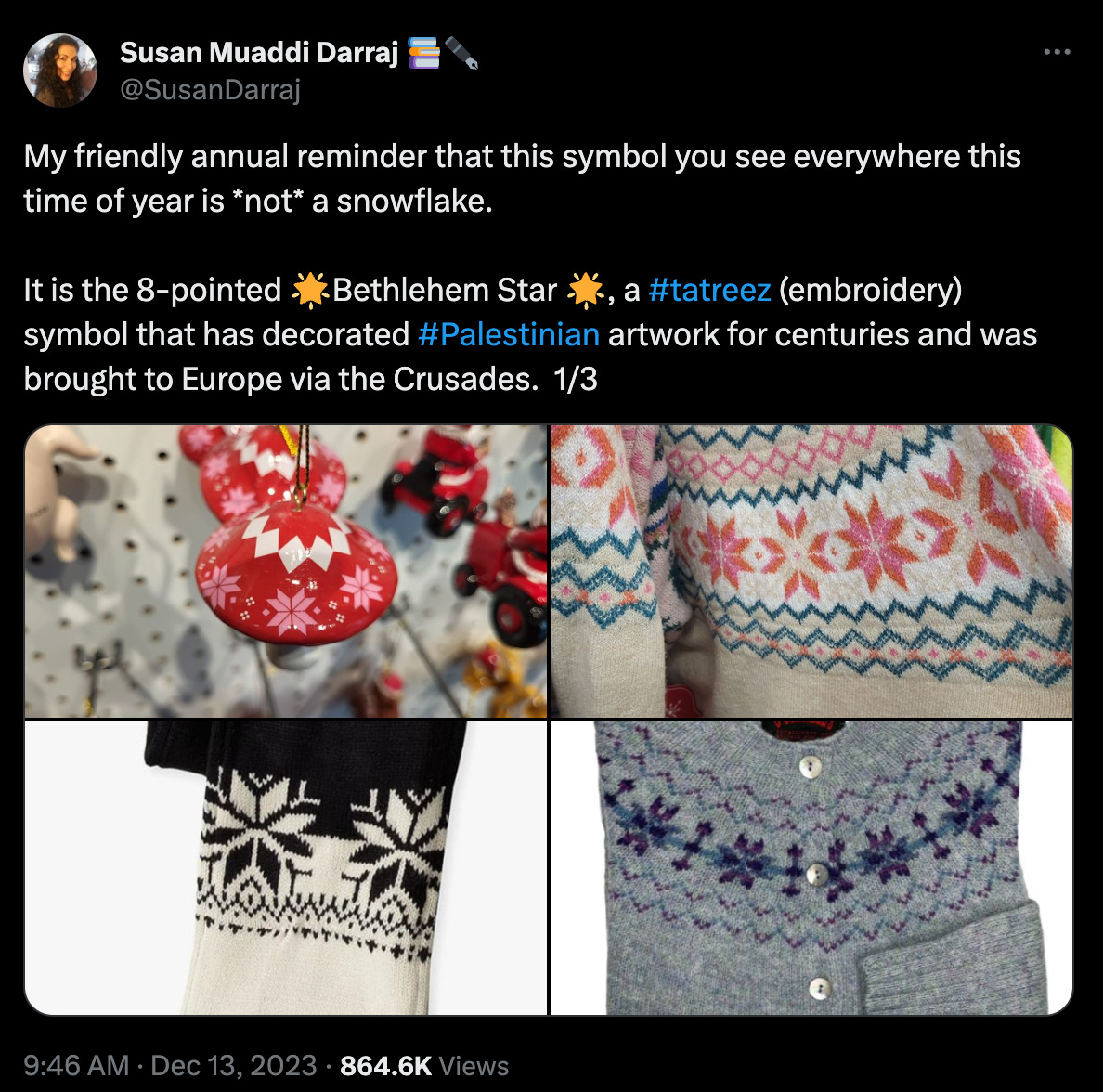
I'm not a fashion intellectual by any means, but the lack of response/support within the fashion community is (with a big sigh), not surprising. I keep seeing Jenn Im's recent IG posts filled with Palestine-supporting comments filled with disappointment in her lack of acknowledgement. On one hand I understand that it's likely her main streams of income are brand partnerships with companies that, I assume, have restrictions on "political" statements, but at this point in time I'd be hard pressed to believe she doesn't have the means/money/resources/connections to be financially stable and say something, or if anything, do the bare minimum and keep her posts off of our timelines until cease fire and give space back to people who are organizing and raising awareness. Point blank, posting about brand partnerships with Revolve are so unserious and very out of touch when she could be an advocate for speaking up against genocide or just being quiet and minding her own business if she doesn't have the mental bandwidth to do so. I did see someone's comment that we should be shaking our fists at Taylor Swift instead, who has immense social capital and power, and would actually have influence SO. I don't think Jenn Im is evil but like.. we can do better..?
Fair Isle is actually part of the Sheltand Archipelago, and it’s style of knitting has been documented since at least the 18th century. It’s most traditional pattern is the OXO motif, as well as more maritime and nautical references. It’s name gets used interchangeably with the more versatile term ‘colourwork’ or specifically ‘stranded colourwork’, and only your last example would strictly fit the definitions of Fair Isle knitting, except for the sleeves, and the fact that it has more than 5 colours in it. I also tend to see more star motifs in Norwegian Kofte, and they are a Scandinavian design as opposed to a Shetland/Scottish one! Perhaps they would connect better with the Scandi girl aesthetic than the fisherman dude aesthetic of traditional Fair Isle.
I would also note that the ‘Star of Bethlehem’ also became a quilting motif, sometimes called a ‘LeMoyne Star’. Native American quilters used the name ‘Morning Star’ for their eight pointed star designs. I feel that the 8-pointed star may be disproportionately popular as a textiles motif than other star designs because it is symmetrical and forms straight lines horizontally and vertically, with only small stretches of diagonals, making it quite simple to knit or quilt compared to a 5 or 6 sided star shape.
Super interesting to learn the history of the star motif, and why it is now part of colourwork knitting and the Scandi girl aesthetic! But Fair Isle is an island of about 60 people. Their traditions have been commodified and diluted beyond belief, and now seem to represent Scandinavia rather than Shetland, so long as we keep using their name incorrectly.
It’s really great to see fashion writers talking about traditional textiles practices, especially Palestinian techniques that are at risk of being lost. It’s very interesting to learn about the history of these motifs that pop up in diluted versions in trends today, so please keep doing this stuff!